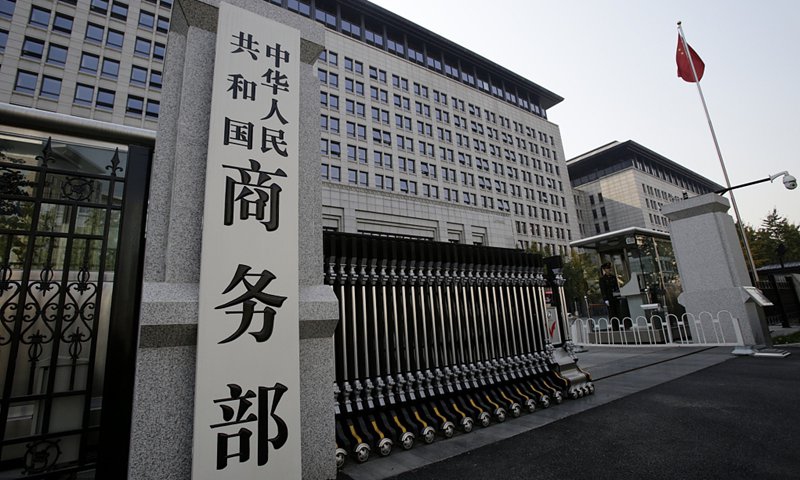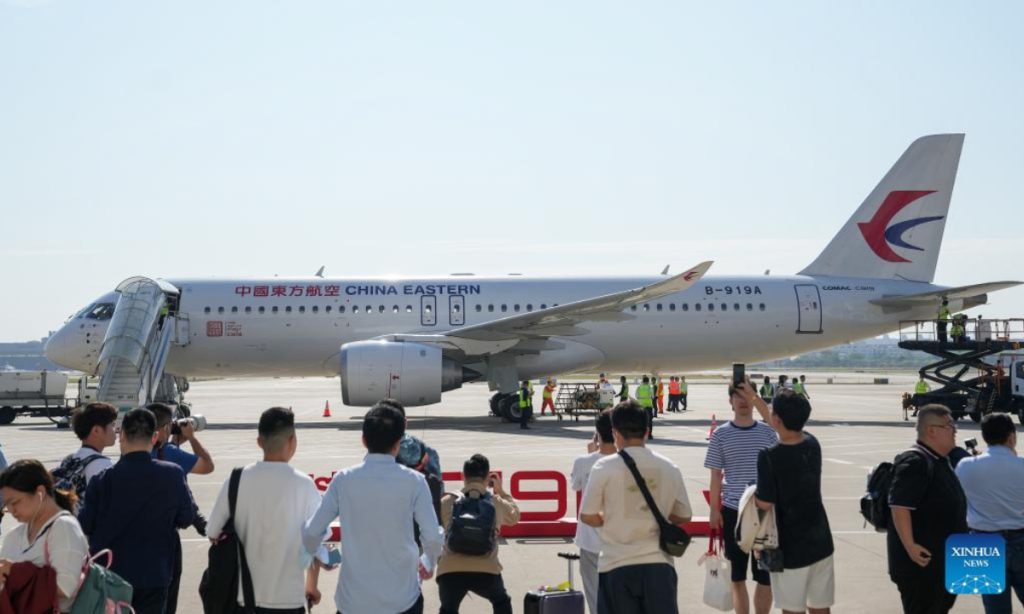Misconceptions about China’s economic resilience fuel misguided Western pessimism

Editor's Note:
While China's economy is undergoing a crucial transformation and upgrade amid the current complex international environment, Western propaganda machines persist in attempting to undermine China's economic progress by creating biased and inaccurate narratives. To counter these false claims, the Global Times is publishing a series of articles that unveil the reality of China's consistent economic development.
Since the start of reform and opening-up, there have been several waves of talking down the prospects of the Chinese economy in the international public opinion arena. Looking back, it is evident that those arguments were all incorrect.
When China's economic development encountered challenges during the late 1980s and early 1990s, the international community was abuzz with discussions regarding the potential "collapse of the Chinese economy." However, with China setting the objective of reforming the socialist market economy system, the economy has sustained rapid growth. From 1991 to 1995, the GDP experienced an average annual growth rate of 12.3 percent.
During the period of 1997 to 2001, as China's economic landscape underwent transformations, a resurgence of the theory of "China's economic collapse" was put forth by some foreign economists. However, the reality is that, through deepening reforms, expanding openness, and macroeconomic policy adjustments, China not only withstood the impact of financial crises, preventing a decline in economic growth, but also entered a period of rapid economic growth after 2000. From 2001 to 2005, China's average annual GDP growth rate was 9.8 percent.
Since 2007, China's economy has been under pressure due to the effects of the international financial crisis. Some foreign scholars have expressed concern about a potential decline in the Chinese economy. For instance, Nobel laureate in economics Paul Krugman wrote an article in The New York Times entitled "Will China break?" In fact, the Chinese government effectively mitigated the impact of the international financial crisis by implementing proactive fiscal policies and moderately easy monetary policies, enabling the economy to maintain stable and rapid growth. In 2010, China's GDP exceeded 40 trillion yuan ($5.6 trillion), solidifying its position as the world's second-largest economy and the largest manufacturing nation.
After 2010, with changes in economic development conditions such as the cost increase of China's labor force, coupled with the lingering impacts of the international financial crisis and the subsequent European sovereign debt crisis, China's economic development entered a new normal. There were once again voices predicting a downturn in the Chinese economy, suggesting that it would face stagnation or even an economic crisis. The fact is that China has promptly implemented measures such as supply-side structural reform, which has helped stabilize and boost the economy, leading to high-quality economic development.
Western cognitive biases
Those who consistently predict the decline of the Chinese economy repeatedly make mistakes because they have cognitive biases and misconceptions about the strong resilience and development principles of the Chinese economy.
First, Western doomsayers simply use Western economic theories to analyze and judge the development prospects of the Chinese economy. Western economic theories, which are developed through analyzing the development experiences of developed Western countries, should not be simply replicated in developing countries, especially in large economies like China that are undergoing economic transformation.
Historical experience has consistently demonstrated that developing nations, when blindly adopting Western economic theories without taking into account their unique national circumstances, have failed to achieve economic development success. Instead, they have often encountered economic stagnation and political unrest.
China has steadfastly followed the path of socialism with Chinese characteristics, implementing reforms toward a socialist market economy and driving Chinese modernization. These efforts have led to notable achievements that have garnered global recognition, showcasing a promising outlook for the great rejuvenation of the Chinese nation.
Second, Western critics have tended to exaggerate short-term and localized challenges, overlooking the resilience of China's economic growth. It is essential to consider both short-term and long-term perspectives when evaluating the economic landscape, rather than fixating on isolated issues. Excessively amplifying short-term or local problems and risks within the Chinese economy is not warranted.
Upon reflection, it is evident that many of the challenges perceived to have a substantial impact on the Chinese economy in the past were not as severe as initially anticipated. This can be attributed to China's status as a major economy, as well as the distinctive advantages of the socialism with Chinese characteristics in effectively addressing the risks and challenges.
Moreover, China's economic development continues to show an upward trajectory, indicating its resilience and capacity to weather shocks with self-stabilizing and self-repairing mechanisms. Although short-term adjustments may be necessary in response to challenges, China has demonstrated its ability to explore new pathways for development.
Third, the negative portrayals of China's economy from the Western media lack clear evidence. Instead, they are rife with biased, ill-intentioned and narrow-minded misinterpretations. Analyzing and studying China's economy necessitates the integration of economic principles with China's specific national circumstances and stage of development. However, some pessimists lack a comprehensive and in-depth research on the Chinese economy, with certain scholars seldom visiting China. There are individuals who even engage in negative commentary to attract attention, and some exploit China slander for financial gain in the capital market.
Positive trajectory unchanged
At present, China's economy is entering in a crucial phase of transition toward high-quality development. Throughout this process, it is bound to face a range of issues and challenges. Nevertheless, China's economic progress remains steadfast. It is bolstered by confidence, advantages, and opportunities, ensuring that its enduring positive trajectory remains unchanged.
First, the foundation of China's economic development remains stable, with new growth drivers emerging and expanding. The country has amassed significant material and technological resources, and its vast domestic market demand serves as a robust pillar for sustaining steady economic growth and navigating through various risks and challenges.
In terms of scientific and technological innovation, despite certain countries intensifying efforts to restrict China's high-tech industries and advocate for "decoupling and disrupting industrial chains," it is impossible for them to impede the progress of China's scientific and technological advancements and industrial upgrades.
Second, China has outstanding comprehensive advantages in human resources, capital, infrastructure and industrial systems, and has huge economic development potential. Although major changes in the total population size and structure will have a certain impact on economic growth, it should be noted that compared with population size, the key factor affecting medium- and long-term economic growth is educating level of labor force. In 2023, China's working-age population aged 16-59 stayed at 865 million, of which more than 240 million received higher education.
From an investment perspective, China's savings rate still remains at a high level, with great investment potential. In addition, after years of development, China has formed a relatively complete and ultra-large-scale infrastructure network. The comprehensive transportation network, power generation installed capacity, power grid, 5G network and other scales all rank first in the world. At the same time, it has built a large-scale, and complete industrial system.
Third, facing new strategic opportunities, there is broad space for the development of new industrialization and new urbanization. The rapid development of a new round of scientific and technological revolution and industrial transformation has brought new opportunities. At present, a new round of scientific and technological revolution and industrial transformation represented by artificial intelligence, life sciences, new energy have entered a period of breakthrough development. Digital, intelligent, and green transformation are advancing at speed, which will enable China to leverage its advantages and improve total factor productivity and promote high-quality economic development.
Admittedly, China's economic development still faces new challenges. Yet, these challenges are inherent to the developmental process and are akin to the "growing pains" experienced during advancement. Despite this, the overall trajectory and momentum of economic development remain steadfast. Historical evidence and present circumstances demonstrate that China's economy has consistently thrived amid adversity. The robust external pressures being exerted will undoubtedly serve as a catalyst for driving China's economic growth.








